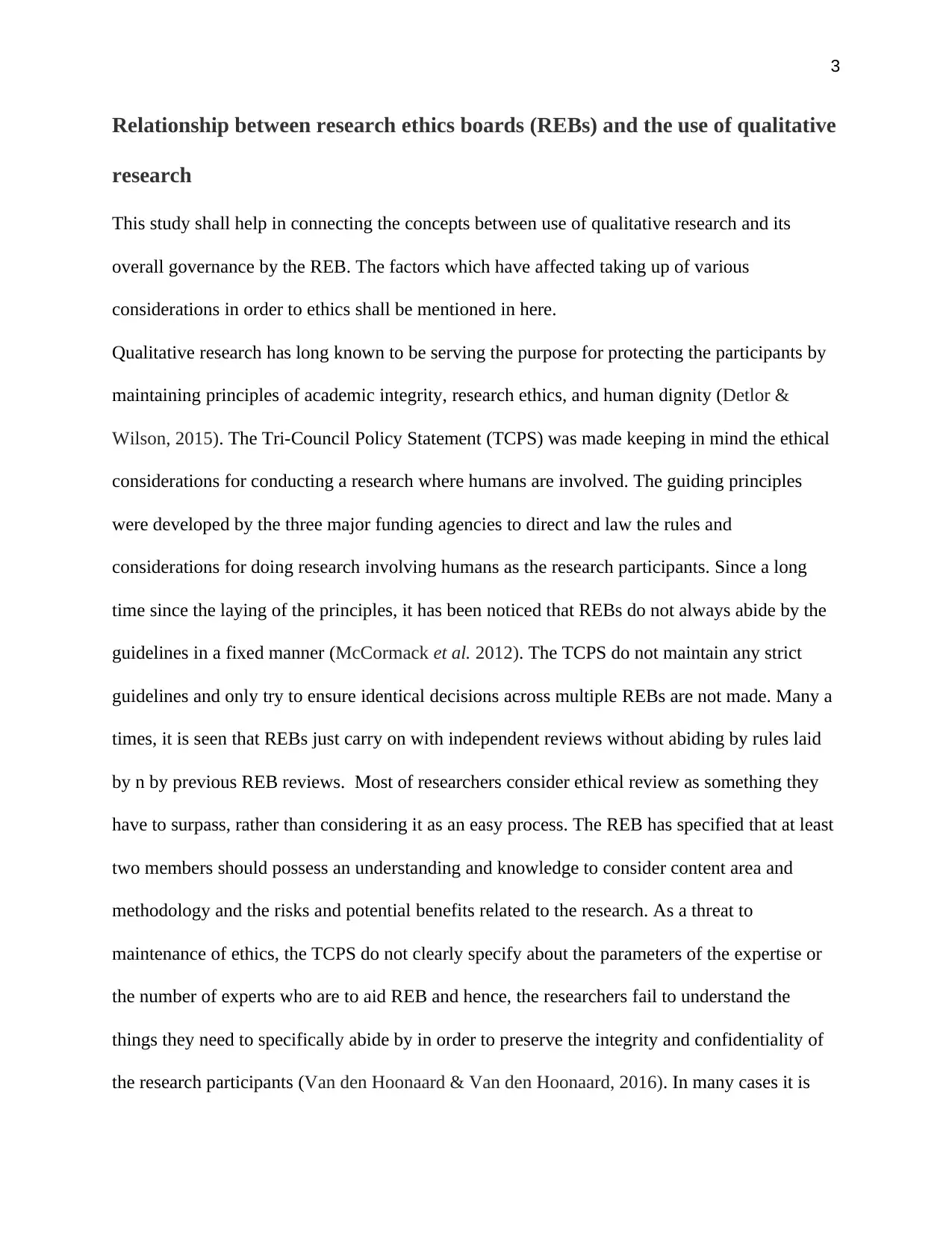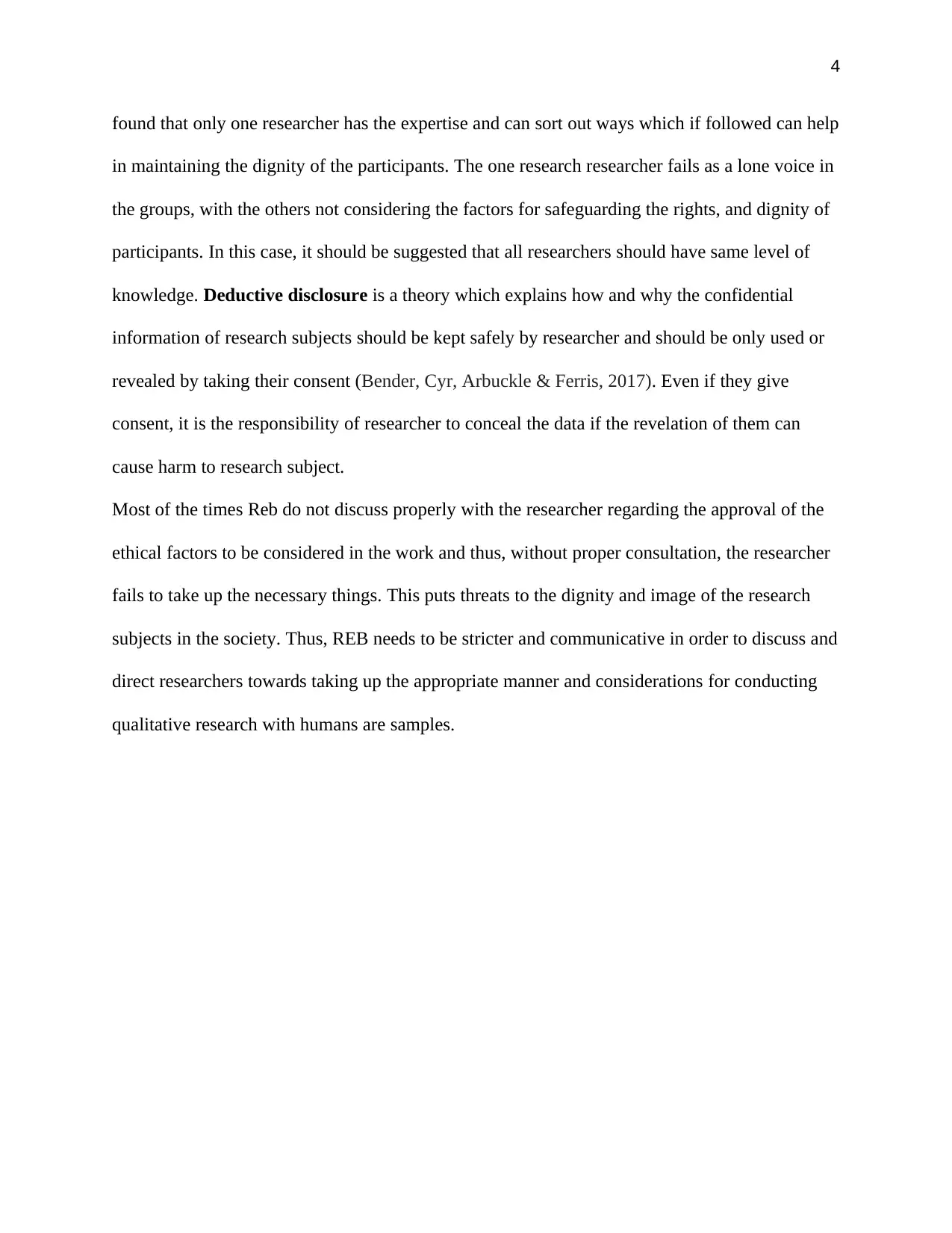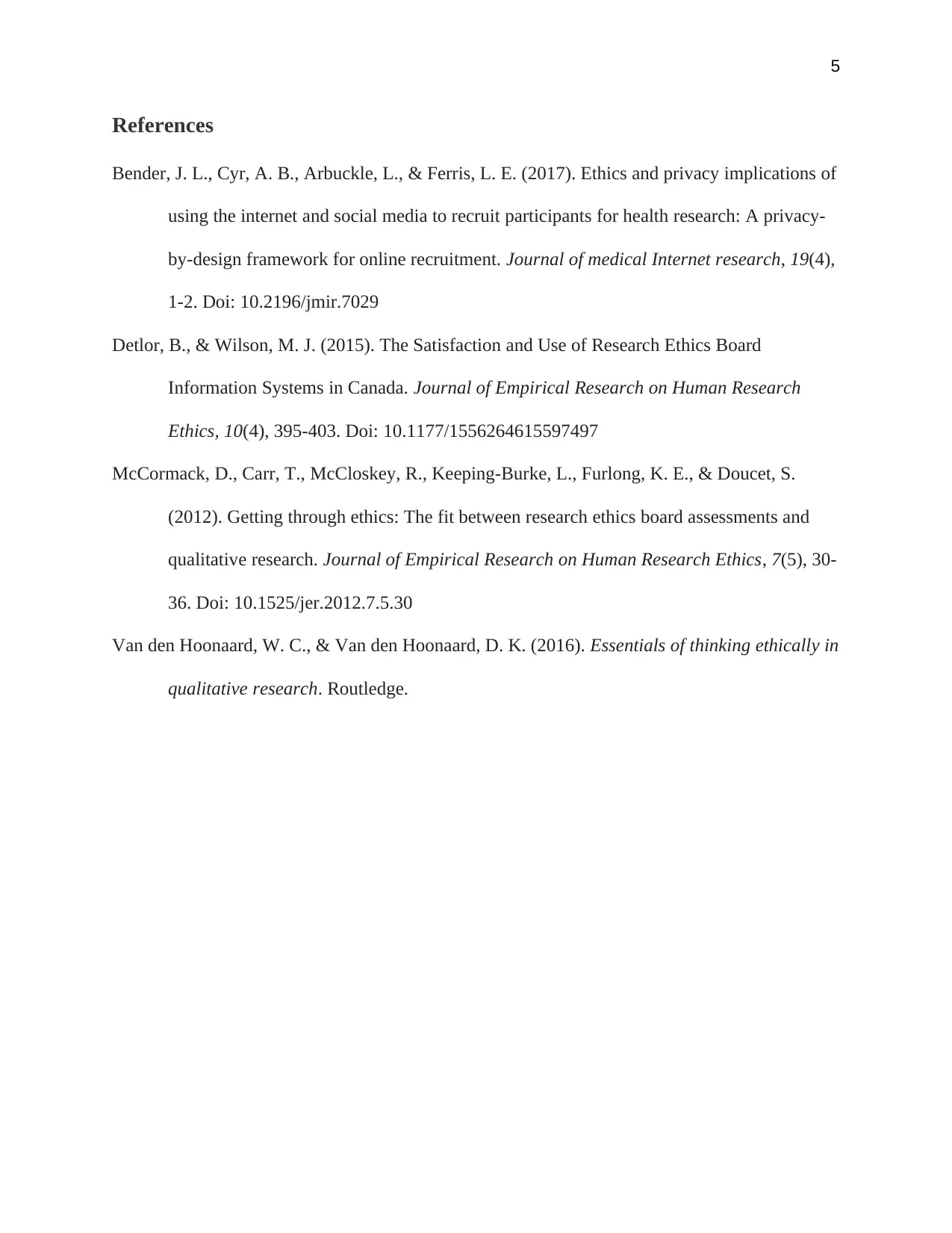Analyzing the Relationship Between REBs and Qualitative Research
VerifiedAdded on 2023/05/30
|5
|828
|445
Report
AI Summary
This report delves into the relationship between Research Ethics Boards (REBs) and the use of qualitative research, examining how REBs govern and influence ethical considerations in research. It highlights the importance of protecting participants and maintaining academic integrity. The report discusses the Tri-Council Policy Statement (TCPS) and its guidelines, noting that REBs may not always adhere strictly to these guidelines, leading to inconsistencies in ethical reviews. It emphasizes the need for REBs to have members with relevant expertise and the importance of deductive disclosure for protecting confidential information. The report also points out the need for better communication between REBs and researchers to ensure ethical practices are followed. The references include studies on research ethics, REB information systems, and the ethical implications of using the internet and social media for research.
1 out of 5












![[object Object]](/_next/static/media/star-bottom.7253800d.svg)